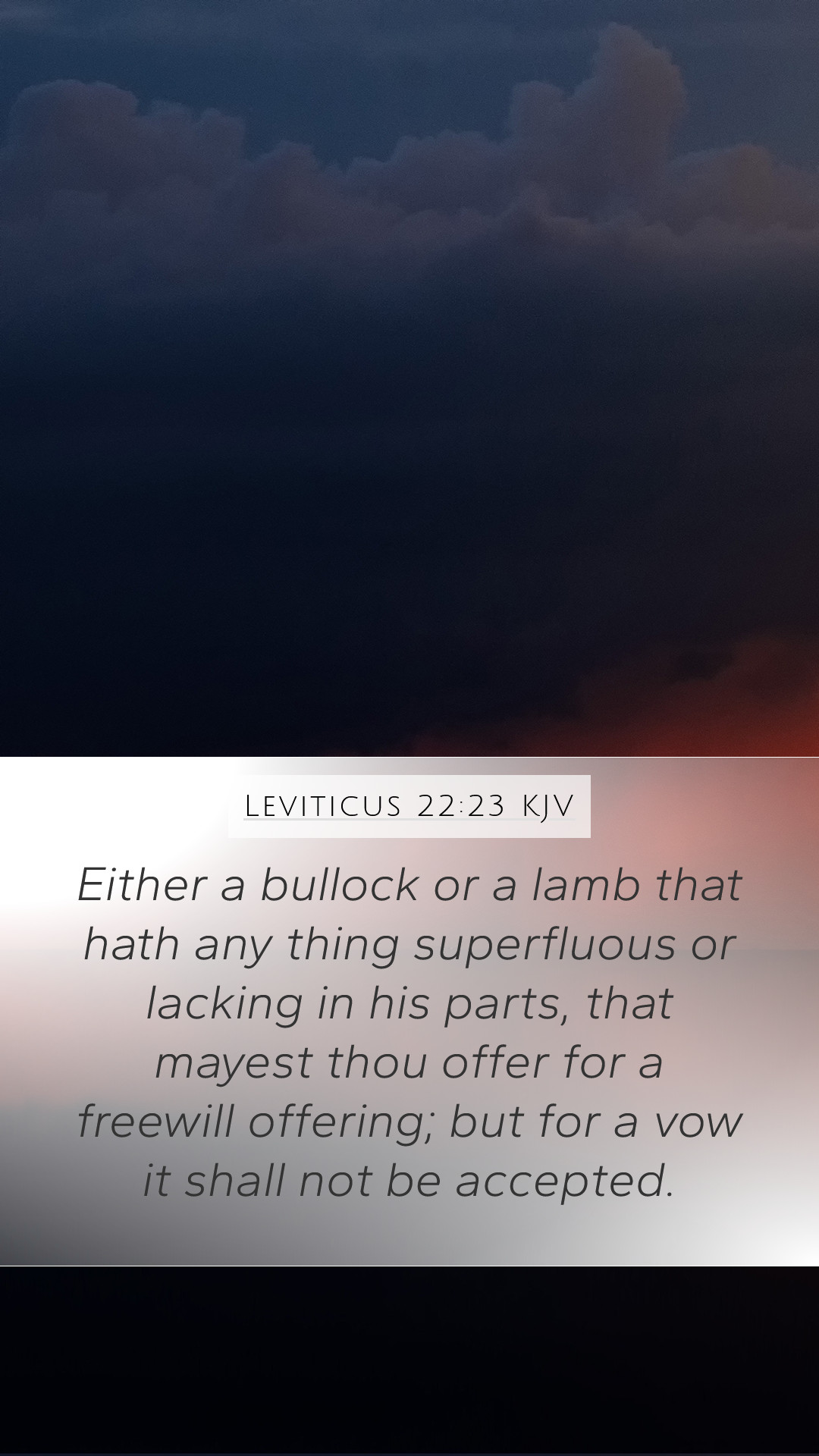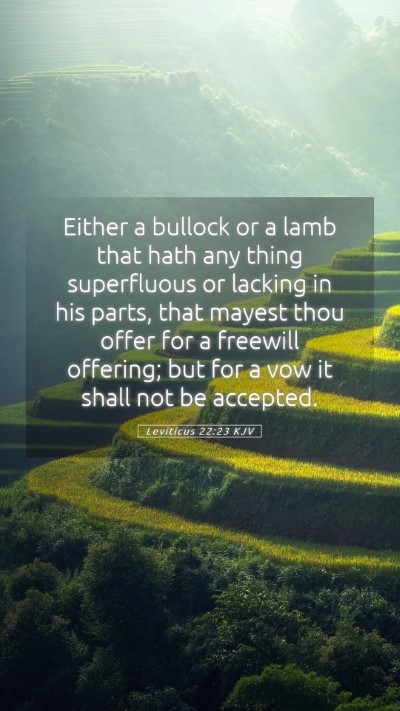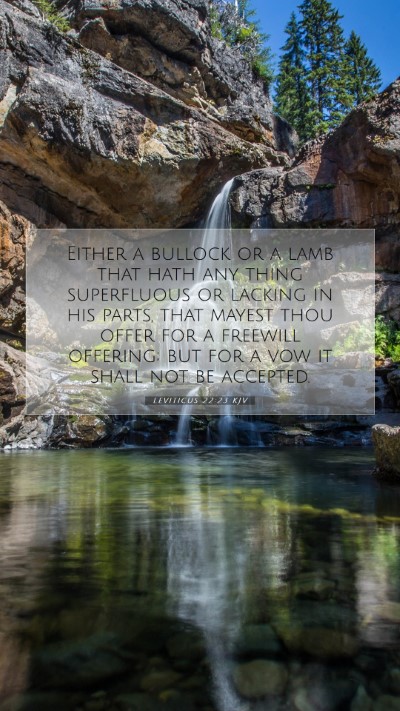Understanding Leviticus 22:23
Leviticus 22:23 states:
"Either a bullock or a lamb that hath any thing superfluous or lacking in his parts, that mayest thou offer for a freewill offering; but for a vow it shall not be accepted." (KJV)
Meaning of the Verse
This verse delves into the regulations surrounding offerings made to the Lord, specifically concerning the acceptance of animals used in sacrifices. It emphasizes the type of offerings God desires—those that are whole and without blemish—while also making a distinction between freewill offerings and sacrificial vows.
Key Insights from Public Domain Commentaries
-
Matthew Henry's Commentary:
Matthew Henry highlights that freewill offerings are those made voluntarily, without compulsion, as an expression of gratitude or devotion. The distinction he makes is crucial; while offerings given freely might allow leeway for imperfections, those given as vows must adhere strictly to God’s standards. This underlines a principle that what we offer to God should reflect our dedication to Him.
-
Albert Barnes Commentary:
Albert Barnes notes that the terms "superfluous" and "lacking in his parts" gives insight into God's expectations regarding offerings. He explains that though God permits some leeway in spontaneous offerings, for covenantal commitments—like vows—the standards are different. This indicates seriousness in our commitments to God, urging believers to consider the worthiness and significance of what they're presenting to Him.
-
Adam Clarke's Commentary:
Adam Clarke discusses the rationale behind the acceptance of animals with defects in voluntary offerings compared to strict rejection in vow offerings. He explains that this regulation reflects the relationship between the quality of the offering and the intention behind it. Clarke emphasizes that God desires sincerity in our actions, whether they are compulsory or voluntary.
Applications for Today
For contemporary readers, Leviticus 22:23 serves as a reminder about the nature of our offerings to God. It urges believers to reflect on:
- The intentionality behind their gifts and contributions.
- The importance of integrity in fulfilling commitments made to God.
- How our devotion is expressed through what we choose to give.
Bible verse explanations
Leviticus 22:23 can be linked to the broader themes found throughout Scripture regarding offerings and sacrifices:
Cross References:
- Exodus 12:5 - Requirement for the Passover lamb to be without blemish.
- Malachi 1:8 - A rebuke to offering blind and sick sacrifices.
- Hebrews 9:14 - Discussion on the value of Christ’s sacrifice compared to animal sacrifices.
Conclusion: Significance of Leviticus 22:23
Understanding Scripture, particularly Leviticus 22:23, expands our comprehension of biblical exegesis surrounding the nature of offerings. The truths embedded in this verse reveal important lessons regarding sincerity and the depth of our commitments to God. It calls believers to honor the divine order in how we approach our relationship with God through our gifts, whether they be in worship, service, or stewardship.
In summary, Leviticus 22:23 provides valuable insights into biblical standards for offerings, emphasizing that our gifts to God—whether a vow or freewill—should reflect our relationship with Him. This verse not only enhances our bible study insights but also serves as crucial bible study material for group discussions, personal reflection, and application in daily life.


